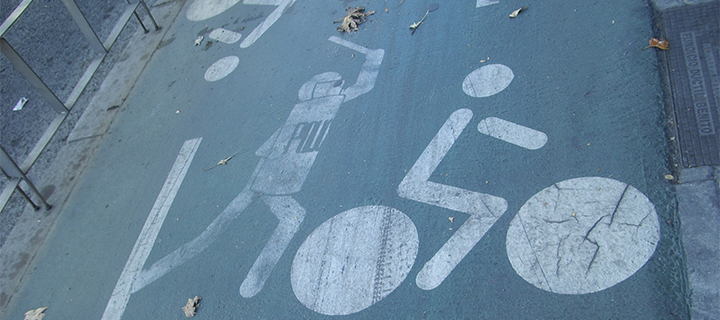
Brazilian anthropologist Luiz Eduardo Soares, who served as the Coordinator of Public Safety for Rio de Janeiro and the Brazilian Secretary of Public Security, among other posts, and has held several academic positions, at private and public universities in Rio, São Paulo and in the U.S., has written an excellent piece, The crisis in Rio and the media pastiche, on the violence in the city of Rio that has made front page news around the world. I met Soares in the spring of 2005 when he agreed to come to Berkeley for a conference I co-organized on violence and the Americas.
The last month and a half in Rio have been particularly bloody, as both the traffickers and government have made shows of force. The most recent events (roughly following this summary in the newspaper the Jornal do Brasil) began on the evening of Sunday, November 21st, when six men armed with machine guns set three vehicles on fire on a major highway called the Linha Vermelha, and while escaping attacked the car of an air force commander. On Tuesday, all of Rio’s active police, along with officers from federal highway patrol were put to the streets to deal with further attacks. Throughout the rest of the week, in which 181 vehicles were burned, the Navy, Army and Federal Police joined forces with Rio’s police in attempting to control the situation, which, it should be noted, was not spread throughout the city but concentrated in specific neighborhoods.
Last Thursday, 200 officers belonging to an elite police force known as Bope (Batalhão de Operações Especiais) entered a favela called Vila Cruzeiro, which is part of bairro da Penha (where for a brief period of time I taught English). Some of the drug traffickers there escaped to another favela, Morro do Alemão. On Sunday morning, a week after this particular episode began (although it is misleading to speak of such events as isolated, even as a shorthand), the forces took control of the morro and the whole Complexo do Alemão, more or less without resistance from the traffickers, according to reports. All of this received dramatic coverage by the Brazilian press. Since at least some of the major traffickers are now making their way through the forested areas of the city to Rocinha, another major favela, the police campaign and accompanying violence will presumably continue.
At least 39 people died in this time period. The initial violence by the gangs was widely reported to be a response to the installation of new community policing units called UPPs in but some sources have said, to the contrary, that rather it was due to a standstill between police and bandits who were in negotiations to update their agreed upon index of bribes.
UPP stands for Unidade de Polícia Pacificadora, in English Pacifying Police Unit, a program that at least in theory aims to impede the “parallel power” of the drug traffickers by actually providing state services in long neglected areas while also addressing crime. (Here’s a NYTimes article; Ben could undoubtedly say a lot more though) They are the current incarnation of a program Soares tried to implement when he was the Public Safety Coordinator in 1999.
Most of the international media, such as the New York Times, has been positively euphoric over the turn of events: “In a quick and decisive military sweep, Brazilian security forces seized control of this city’s most notorious slum on Sunday, claiming victory in a weeklong battle against drug gangs that has claimed dozens of lives”; this echoes the reporting in the mainstream Brazilian media.

The traffic the TV shows. The traffic the TV does NOT show
Soares, who was in much demand by the media for comments on the events, instead wrote a piece for his blog. Some of the points he made are these:
The media always repeats the same cycle of rabid attention to crises, paired with a complete lack of investment in reflection and consistent, solid information in the off period. They repeat the same wrong questions (a) what can be done right now to contain the violence? (b) what can the police do to definitively conquer the drug trade? (c) Why doesn’t the government call in the army? (d) will Rio’s image be sullied internationally? (e) Will we succeed in having a great World Cup and Olympics?

de André Dahmer http://www.malvados.com.br Rough translation: 1) guy: I wrote a piece on Facebook defending the death of the trafficker. 2) guy: Or you think a bandit would grant quarter to someone? He’d kill him right away. 3) guy: I am a good citizen, you have to put bullets in them. Dog: one more good citizen who thinks like a bandit
He then proceeds to respond to these questions. There is nothing, he says, that can be done immediately to resolve the situation of insecurity. “If we want to in fact solve a serious problem, it is not possible to continue to treat the patient only when he is in ICU, stricken with a deadly illness, in the acute stage…Therefore the first step to avoid repeating the situation is to change the question… : what can be done to improve public security, in Rio and in Brazil, to avoid the everyday violence, as well as its intensification, expressed in successive crises?” Those who say that the situation requires immediate response take exactly the position that has impeded consistent advances in public security; long term solutions are necessary. “The best response to the emergency is to begin to move in the direction of rebuilding the conditions that generated the emergency situation.”
The police, Soares writes next, must stop joining the traffickers: they must stop selling them arms, and they must not form militias that take criminal profits. In other words, “the polarity referred to in the question (police versus traffickers) hides the real problem: there is is no polarity.” What must happen is in fact a separation of the bandit from the police, a differentiation between crime and police. There are, he emphasizes, honest police whom he considers the first victims of their institution’s degradation, because the “rotten band of police” who act in militias, embarrass, humiliate and threaten them.
Soares makes several other useful comments, pointing out, for example, that trafficking as it is currently conducted, by gangs that are expensive to arm and have high mortality, is going to change to a delivery model; I’ll leave it at this for now though.
He ends with an incensed description of the media coverage. The nightly news in Brazil, watched by nearly everyone, is called the Journal Nacional. Soares writes that the news on “Thursday, 25 November, defined the chaos in Rio de Janeiro, splattering scenes of war and death, panic and desperation, as a day of historic victory: the day the police occupied Vila Cruzeiro. Either I suffered a sudden mental blackout and became an obdurate and incorrigible idiot, or the editors of the nightly news felt themselves authorized to treat millions of viewers as obdurate and incorrigible idiots.”
Here’s another useful analysis of the media and what has been happening in Rio (in Portuguese)
 “Fault Lines in an Anthropology of Police, Both Public and Global” in Anthropology News
“Fault Lines in an Anthropology of Police, Both Public and Global” in Anthropology News




